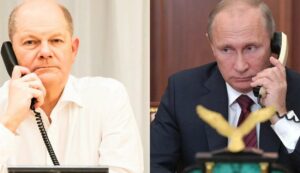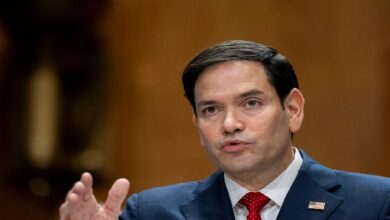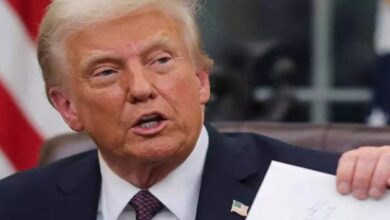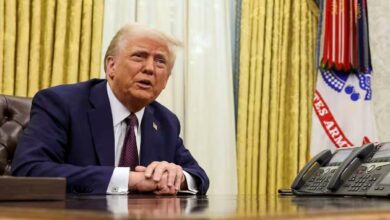German Chancellor Olaf Scholz and Russian President Putin held a phone conversation for the first time in 2 years
Germany: In the midst of the continuing conflict in Ukraine, German Chancellor Olaf Scholz and Russian President Vladimir Putin had their first meeting in over two years on Friday, according to Al Jazeera.
Scholz, who faces a snap election in Germany in February after his coalition fell apart, called on Putin to hold negotiations with Ukraine in order to reach a “just and lasting peace.”

Scholz reiterated Germany’s continued support for Ukraine “for as long as necessary,” denounced Russian strikes on Ukrainian infrastructure, and warned that the deployment of North Korean troops in Russia to help defend the Kursk region would intensify the conflict, according to a German spokesperson who spoke to Al Jazeera.
According to Al Jazeera, Putin responded by calling the situation a direct outcome of NATO’s “aggressive” methods and stressing that any possible deals must address the war’s underlying causes and take into consideration Russia’s territorial rights and security interests.
“Possible agreements must take into account the interests of the Russian Federation in the area of security, proceed from new territorial realities, and most importantly, eliminate the root causes of the conflict,” the Russian president said, according to Al Jazeera.
If Berlin agreed, Putin also spoke of the possibility of “mutually beneficial cooperation” with Germany, especially in the area of energy commerce.
Volodymyr Zelenskyy, the president of Ukraine, voiced his fear after the call that it would damage attempts to isolate Putin, calling it “pandora’s box” and cautioning that it would lead to future discussions that might harm Ukraine’s stance.
“There could be more calls and discussions now. Just words, plenty of them. It is crucial that Putin weaken his isolation, which is precisely what he has always desired,” Zelenskyy said.
The appeal came as Russian soldiers were advancing in Ukraine’s eastern areas, making it a crucial moment for the country. Concerns over the future of US assistance for Ukraine have also been raised by Donald Trump’s reelection in the US.
Since Trump’s return to the White House could change US policy toward the war and German domestic opinion, especially in the East, is increasingly calling for an end to military support for Ukraine, the timing of the call is seen as closely tied to the political changes in both the US and Germany, according to Al Jazeera.
Alongside the continuous airstrikes that target both military and civilian facilities, the phone conversation occurred as Russian forces continue to make little but steady progress in eastern Ukraine.





